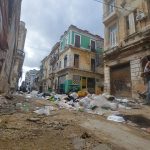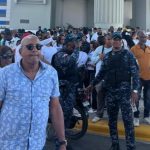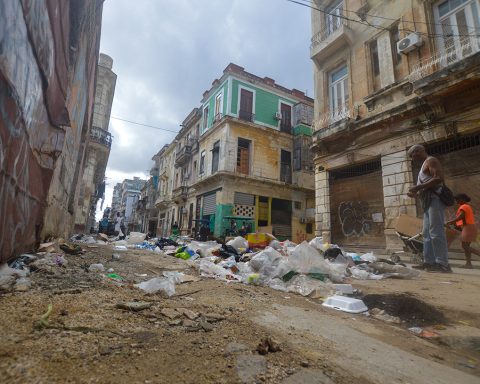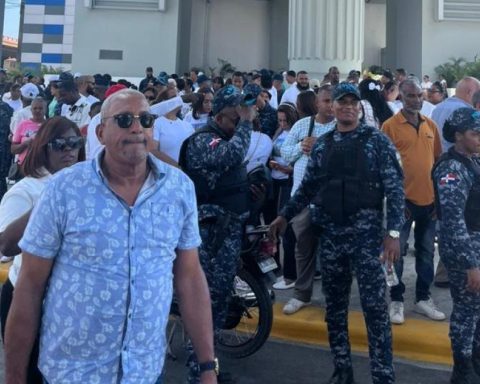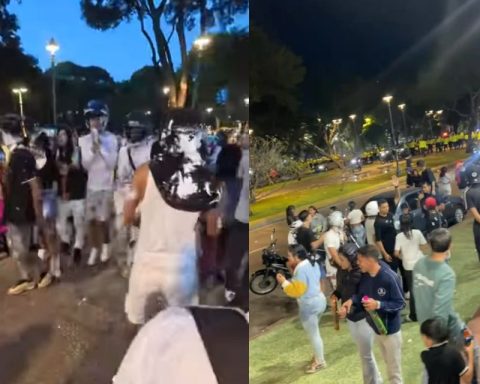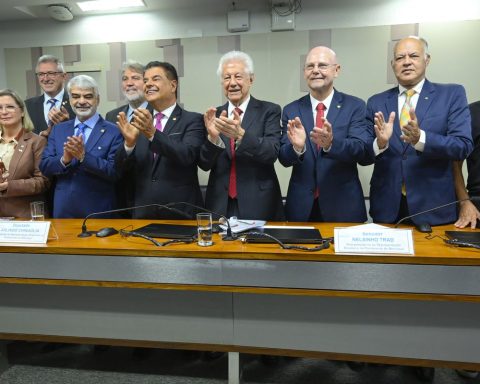The support of the president of the Central American Bank for Economic Integration (CABEI), the Honduran Dante Mossi, to the dictatorship and Daniel Ortega and to the accomplices of the regime that have received international sanctionsgenerated criticism of the official -as well as demonstrations of solidarity with the people of Nicaragua- from four Central Americans consulted by CONFIDENTIAL.
In an interview with Channel 12 television, the head of the Bank stated that “there is a system of sanctions that it is unfair, because a person is accused and judged without due process, but these are the rules of the international game”, admitting afterwards that CABEI is looking for “protection mechanisms”, to be able to continue “providing this financingwithout violating international provisions”.
The statements of the entity’s executive president constitute “an error”, according to the opinion of the professor and former representative of Costa Rica before that regional bank, Ottón Solís, while the Nicaraguan economist Julio Ricardo Hernández, recommended “not to continue facing the fallacies of Mossi, with the natural indignation or embarrassment that they provoke in us”, but trying to see what lies beyond their words.
The president of the Coordinating Committee of Agricultural, Commercial, Industrial and Financial Associations of Guatemala (Cacif, equivalent to Cosep), Hermann Giron, recalled that the Guatemalan business sector “has repeatedly spoken out since June 2021, against the abuses that have been have committed against freedom of expression, and for the illegal arrests of business leaders, social Y academics In Nicaragua”.
That policy of intolerance and undermining of the freedoms of Nicaraguans has resulted, so far, in the sanction of some sixty officials of the regime headed by Daniel Ortega and Rosario Murillo, by the United States, the European UnionCanada, England, Swiss… what includes Murillo herselfseveral of his children and his closest collaborators.
Salvadoran Campos warned that “Mr. Mossi should accurately identify -and make it public to the entire region- if funds generated in the US that arrived at CABEI have been transferred via loans or non-reimbursable resources, to the dictatorship of Daniel Ortega. Eventually, if the Treasury Department certified such a course of resource flow, it could establish sanctions against CABEI itself”, he warned.
The Salvadoran political scientist, Napoleón Campos, is struck by “the ignorance” of the president of CABEI, or the lack of advice, despite holding such a high regional position, “in matters of International Law, since both the decree of the US Congress and the lack of advice. known as ‘Engel List‘ and the ‘Global Magnitsky Law‘, they are not extraterritorial instruments”, he explained.
Of both legal instruments, approved by two bipartisan majorities, the first allows the State Department to decide whether or not to enter the United States territory of individuals whose career is marked by anti-democratic acts and corruption, while the second “financially sanctions individuals with similar profiles, but it extends its range to individuals and entities that violate Human Rights or are complicit in said violations, and to narco-politicians”, he detailed.
CABEI: stick and carrot at the same time
In an interview on the show TonightOttón Solís described as “a serious mistake” that from his position, Mossi interferes in internal political issues, while he has never advocated for political prisoners, for example.
“That’s what’s surprising. Given the overwhelming evidence that even leftist regimes in Latin America and left-wing politicians condemn the dictatorial and anti-democratic actions of Daniel Ortegathe president of CABEI, from the position he holds, informs us that for him Nicaragua has no problem of violation of human rights or political rightsand question what other regimes have done to try to stop what is happening in Nicaragua,” he questioned.
In contrast, the president of Cacif reiterated that “we join the calls of hundreds of people and institutions that have expressed their support for these persecuted and unlawfully imprisoned people in Nicaragua.”
Asked about the possibility of CABEI conditioning the loans offered to the regime to an obligation to respect democracy and human rights, Costa Rican Solís recalled that “since Amartya Sen, the issue of freedom is fundamental in defining developmental”.
“A primary objective of CABEI is to promote development, so Dante Mossi, instead of defending the regime, should observe that clauses of the Constitutive Agreement are not complied with when resources are channeled in that direction, given that this component of the definition of development,” he reiterated.
Neutering the value of the private sector
“CABEI has had in Nicaragua a country with a very well structured Ministry of Finance; truly an example in the region,” Mossi said in the interview, highlighting the execution of electrification projects, construction of hospitals and roads; the program for the reactivation of small and medium-sized enterprises, and another to support producers in the Dry Corridor.
The economist Hernández admitted that “the participation of private companies in the development of infrastructure, the provision of energy and communications, financial inclusion and other public policies for development, has been a successful strategy in many third world countries, the that are only rejected by centralist governments that seek to maintain high control of the economy in the hands of the public sector”.
Ironically, “that is not the case for Ortega. He embraces her because the participation of the private company helps him to control this company. He doesn’t care to make her a development factor: he cares to tie her down, ”he sentenced.
He added that there are basic preconditions “for private enterprise to assume an active role in public policies as a factor of development,” including legal certainty over property, an independent judicial system, a competitive economic environment, free access to public information, transparent and properly regulated markets, with well-informed consumers. There is none of that in Nicaragua, nor would Ortega allow it,” he showed.
“Without these preconditions, this becomes apparently liberal and progressive demagoguery, which hides a maneuver of tight state control over the private sector. It is the search for a transition from ‘the private company’, to ‘the tamed company’, and CABEI is ‘delighted’ to serve it”, he concluded.
Ortega annulled the “due process”
Solís also questioned whether Ortega is demanding due process for his government officials who have been sanctioned, without first reviewing his decision to create specific laws to ensure that every contender for the presidency of the Republic, “is imprisonedhave had to leave the country by force, or have a house as a prison, “he said.
“There, the ‘due process’ was to assemble in the Legislative Assembly with the majority that it has, regulations that allow it to avoid electoral competition and that is not due process. That is called ‘singular legislation’. is to make a specific legislation to convict political rivalsand that has nothing to do with due process,” he insisted.
Based on his knowledge of how the multilateral bank works, the Costa Rican believes that if the Board of Governors or the countries that own the Bank speak out against Mossi’s statements, it is because he has put together a system that allows him to control what the country representatives.
“What I see is silence. He has the tools to… protect directors,” he said in reference to their high salaries, or his travel privileges. “He also has a way to co-opt the countries, because he has the entire loan portfolio, and the countries probably fear that if they question him, he might not continue lending to that country. It is a terrible conflict of interest, which reveals that CABEI’s governance is not right”, he summarized.
Although he acknowledges that the Board of Governors can determine the end -or the conditioning- of the loans to the dictatorship, he reiterates his certainty that if a country assumes a position like that, “the flow of credit, or that of disbursements or cooperation non-reimbursable techniques or support in cases of emergency”, will be reduced. “Wrongly, the presidents do not react as they should react, and even less the governments outside of Central America that have… a position on the board of directors.”
“Nicaragua, like the other Central American countries, has an enormous weight in the votes that take place in CABEI, and what he seeks by turning a blind eye to the issues in Nicaragua, the political situation, the violation of political rights and human rights, is to prevent Nicaragua from joining [cualquier votación en su contra, como] when I was at CABEI, and I called for increased transparency, ethics, and limits were placed on a series of abuses that exist in CABEI”, he recalled.
Dante Mossi’s main program is “reelection next year, and in search of that reelection, he puts aside any other consideration when it comes to promoting decisions,” he added.







